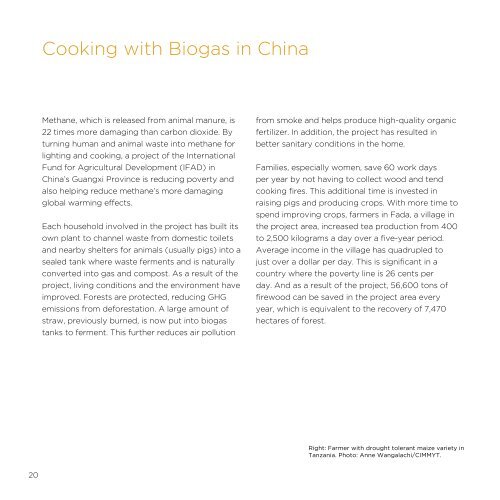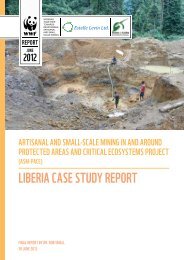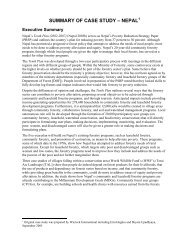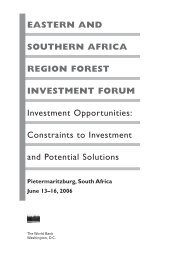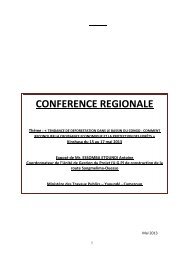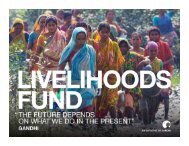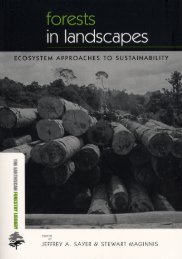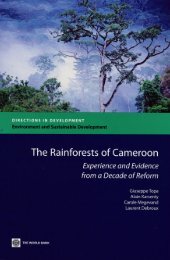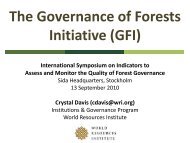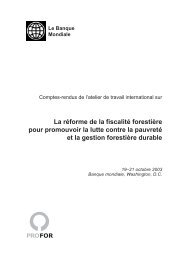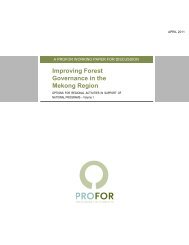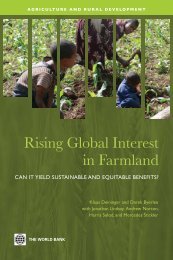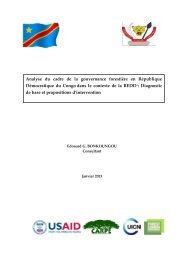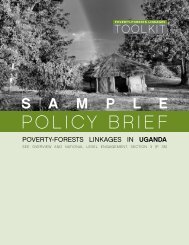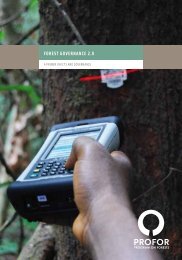Climate Smart Agriculture: A Call to Action - PROFOR
Climate Smart Agriculture: A Call to Action - PROFOR
Climate Smart Agriculture: A Call to Action - PROFOR
Create successful ePaper yourself
Turn your PDF publications into a flip-book with our unique Google optimized e-Paper software.
Cooking with Biogas in China<br />
Methane, which is released from animal manure, is<br />
22 times more damaging than carbon dioxide. By<br />
turning human and animal waste in<strong>to</strong> methane for<br />
lighting and cooking, a project of the International<br />
Fund for Agricultural Development (IFAD) in<br />
China’s Guangxi Province is reducing poverty and<br />
also helping reduce methane’s more damaging<br />
global warming effects.<br />
Each household involved in the project has built its<br />
own plant <strong>to</strong> channel waste from domestic <strong>to</strong>ilets<br />
and nearby shelters for animals (usually pigs) in<strong>to</strong> a<br />
sealed tank where waste ferments and is naturally<br />
converted in<strong>to</strong> gas and compost. As a result of the<br />
project, living conditions and the environment have<br />
improved. Forests are protected, reducing GHG<br />
emissions from deforestation. A large amount of<br />
straw, previously burned, is now put in<strong>to</strong> biogas<br />
tanks <strong>to</strong> ferment. This further reduces air pollution<br />
from smoke and helps produce high-quality organic<br />
fertilizer. In addition, the project has resulted in<br />
better sanitary conditions in the home.<br />
Families, especially women, save 60 work days<br />
per year by not having <strong>to</strong> collect wood and tend<br />
cooking fires. This additional time is invested in<br />
raising pigs and producing crops. With more time <strong>to</strong><br />
spend improving crops, farmers in Fada, a village in<br />
the project area, increased tea production from 400<br />
<strong>to</strong> 2,500 kilograms a day over a five-year period.<br />
Average income in the village has quadrupled <strong>to</strong><br />
just over a dollar per day. This is significant in a<br />
country where the poverty line is 26 cents per<br />
day. And as a result of the project, 56,600 <strong>to</strong>ns of<br />
firewood can be saved in the project area every<br />
year, which is equivalent <strong>to</strong> the recovery of 7,470<br />
hectares of forest.<br />
Right: Farmer with drought <strong>to</strong>lerant maize variety in<br />
Tanzania. Pho<strong>to</strong>: Anne Wangalachi/CIMMYT.<br />
20


